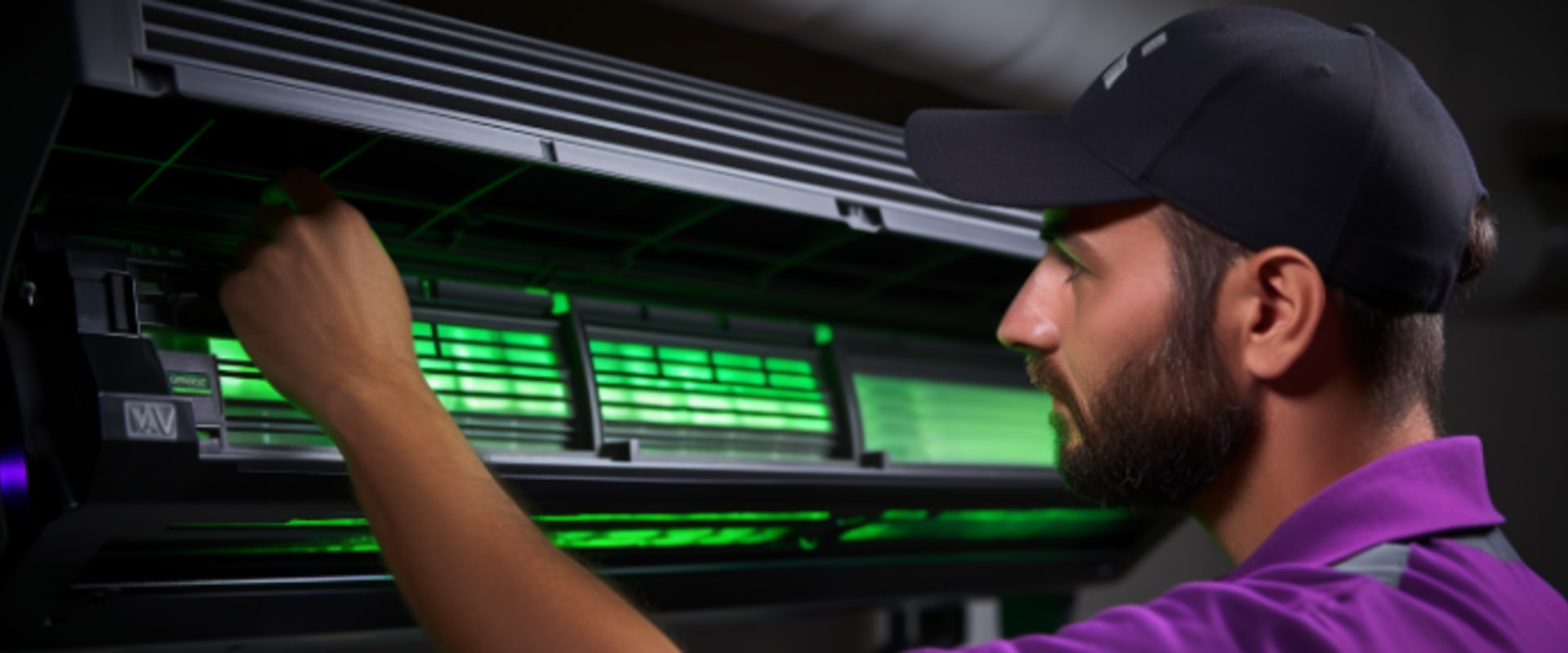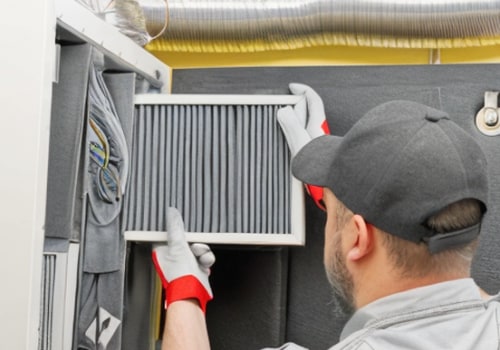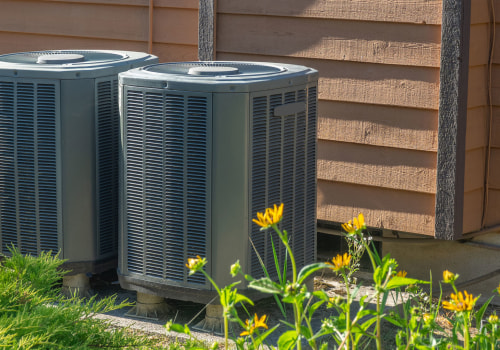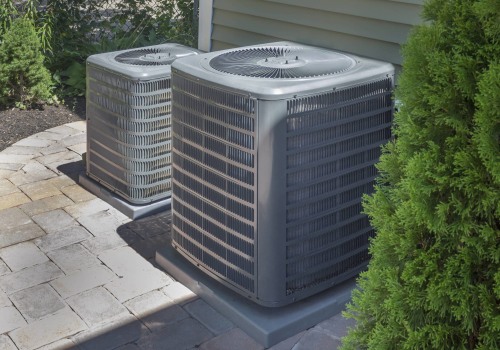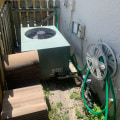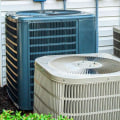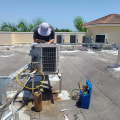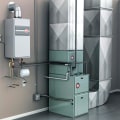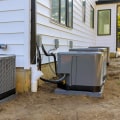HVAC UV Light Installation Service in Kendall FL
This discusses the benefits and importance of HVAC UV light installation service in Kendall, FL. It provides an overview of UV light technology and emphasizes the significance of professional installation. Furthermore, it offers guidance on selecting the appropriate UV light system for HVAC units and provides maintenance tips. Additionally, common misconceptions surrounding HVAC UV light installation are addressed. Testimonials from satisfied customers are also included to support the effectiveness of this service.
Benefits of HVAC UV Light Installation
The installation of HVAC UV lights offers several benefits in improving indoor air quality and reducing the growth of microorganisms. These lights emit ultraviolet radiation, which can effectively kill airborne bacteria, viruses, and mold spores. By eliminating these harmful microorganisms, the HVAC system helps to maintain a healthier indoor environment for occupants.
One of the key benefits of installing HVAC UV lights is the improvement in air quality. The UV lights sterilize the air as it passes through the system, reducing the presence of allergens and other contaminants. This can be particularly beneficial for individuals with respiratory conditions such as asthma or allergies.
In addition to enhancing air quality, HVAC UV lights also contribute to energy efficiency. When microorganisms accumulate on cooling coils and other components of the HVAC system, they can reduce its efficiency by impeding heat transfer. By eliminating these microorganisms, UV lights help to maintain optimal performance and improve energy efficiency.
Overall, the installation of HVAC UV lights provides significant advantages in terms of improving indoor air quality and promoting energy efficiency. These lights effectively eliminate harmful microorganisms from circulating in the air and ensure that the HVAC system operates at its highest potential.
Importance of Professional Installation
Professional installation plays a crucial role in ensuring the effectiveness and longevity of UV light systems. When it comes to HVAC UV light installation, hiring professionals is highly recommended for several reasons. Firstly, professional installation ensures that the system is installed correctly and according to industry standards. This reduces the risk of any malfunctions or damage that could occur from improper installation. Professionals have the necessary knowledge and expertise to determine the optimal placement of the UV lights within the HVAC system, maximizing their effectiveness in reducing microbial growth.
Another benefit of professional UV light installation is that it can save costs in the long run. While there may be a cost associated with professional installation upfront, it can prevent potential issues or damages that could lead to costly repairs or replacements down the line. Professionals are aware of the different types of UV lights available in the market and can recommend the most suitable option based on specific needs and requirements.
Understanding UV Light Technology
One important aspect of UV light technology is its ability to effectively reduce microbial growth in various settings. UV light has been widely used as a disinfection method due to its ability to destroy the DNA of microorganisms, thereby rendering them unable to reproduce and causing their death. This makes it a valuable tool in industries such as healthcare, food processing, and water treatment, where maintaining a clean and sterile environment is crucial.
There are several pros associated with UV light technology. Firstly, it does not require the use of chemicals or produce harmful byproducts, making it an environmentally friendly option compared to traditional disinfection methods. Secondly, UV light can reach areas that may be difficult to clean manually or with other disinfection techniques, ensuring thorough decontamination. This technology does not lead to the development of resistant strains of microorganisms, which can occur with the use of antibiotics or chemical disinfectants.
However, there are also some cons associated with UV light technology. One limitation is that it requires direct exposure to effectively kill microorganisms; shadowed areas may not receive sufficient dosage for effective disinfection. UV light can cause damage to human skin and eyes if proper precautions are not taken.
In addition to its applications in healthcare and sanitation industries, UV light technology has found uses in other fields as well. For example, it is utilized in the manufacturing industry for curing coatings on various materials such as plastics and metals. It is also employed in wastewater treatment plants for removing organic contaminants from water sources.
Choosing the Right UV Light System for Your HVAC
When selecting UV lights for your HVAC system in Kendall, FL, several factors should be considered. These factors include the size and layout of the space, the specific needs or concerns regarding indoor air quality, and the budget available for installation and maintenance. Consulting with HVAC professionals can provide valuable recommendations based on their knowledge and expertise in the field, ensuring that you choose the right UV light system for your specific requirements.
Factors to Consider When Selecting UV Lights
An important factor to consider when selecting UV lights for HVAC installation is the wavelength range of the light. The wavelength range determines the effectiveness of the UV light in sterilizing and disinfecting the air passing through the HVAC system. Different microorganisms have varying sensitivities to different wavelengths of UV light, so it is essential to choose a UV light system that emits a wavelength range capable of effectively targeting and neutralizing specific pathogens or contaminants present in the air. Other factors to consider when selecting UV lights include their power consumption, size, and installation requirements. It is crucial to ensure that the selected UV lights are compatible with the existing HVAC system and can be installed properly without causing any damage or disruptions. Proper consideration of these factors will help ensure optimal performance and efficiency of the UV light system in improving indoor air quality.
Consulting with HVAC Professionals for Recommendations
Consulting with HVAC professionals can provide valuable recommendations for selecting the most suitable UV lights for sterilizing and disinfecting air in a given environment. The benefits of consulting with these professionals are numerous. Firstly, they have extensive knowledge and experience in the field, enabling them to assess the specific needs of each unique setting. By considering factors such as room size, airflow patterns, and existing ventilation systems, HVAC professionals can offer tailored advice on the appropriate type and placement of UV lights. Secondly, relying on their expertise ensures that reliable professionals are involved in the decision-making process. Finding trustworthy HVAC experts is crucial as they can guide individuals toward reputable manufacturers and suppliers who provide high-quality UV light products. Ultimately, engaging with HVAC professionals guarantees informed choices regarding UV light installation for optimal air sterilization and disinfection purposes.
Maintenance and Cleaning Tips for UV Lights
Regular maintenance and cleaning of UV lights is essential to ensure their optimal functioning and effectiveness in eliminating harmful microorganisms. UV lights are commonly used in various industries, such as healthcare facilities and food processing plants, to disinfect air and surfaces. Cleaning techniques for UV lights may vary depending on the specific type of light installed. However, some general practices can be followed. Firstly, it is important to disconnect the power source before starting any cleaning procedures to avoid electrical shocks. Secondly, wiping the surface of the UV light with a clean cloth dampened with mild soap or disinfectant solution can help remove dust particles or residue buildup effectively. Regular inspection for any signs of damage or wear is crucial for ensuring that the UV light continues to function optimally. The benefits of regular maintenance extend beyond ensuring optimal performance; they also include prolonging the lifespan of the UV light and reducing the risk of system malfunctions that could compromise its ability to eliminate harmful microorganisms effectively. By adhering to proper cleaning techniques and regularly maintaining UV lights, their efficacy in safeguarding against pathogens can be maximized.
Common Misconceptions about HVAC UV Light Installation
This explores the potential of UV light as a replacement for air filters and its effectiveness in controlling mold growth. The use of UV light in HVAC systems has gained attention due to its ability to eliminate airborne pathogens and improve indoor air quality. Research suggests that UV light can inhibit the growth of mold and other microorganisms within the system, reducing the risk of respiratory issues and allergies.
UV Light as a Replacement for Air Filters
UV Light has been proposed as an alternative to traditional air filters in HVAC systems. This technology utilizes ultraviolet (UV) radiation to purify the air by targeting and neutralizing airborne pathogens, such as bacteria, viruses, and mold spores. The rationale behind using UV light is that it can effectively eliminate these microorganisms without the need for regular filter replacement or maintenance. Proponents argue that UV light offers a more cost-effective solution compared to conventional filters since it eliminates the recurring costs associated with filter replacements. UV light installations require less space within HVAC systems, making them suitable for both residential and commercial applications. However, further research is needed to determine the long-term effectiveness of UV light as a replacement for air filters and its impact on energy consumption in HVAC systems.
UV Light's Effectiveness in Controlling Mold Growth
To evaluate the effectiveness of UV light in controlling mold growth, researchers have conducted experiments to measure the reduction of mold spores in controlled environments. These studies have shown that UV light can effectively kill bacteria and other microorganisms, including mold spores. When UV light is used in HVAC systems or air purifiers, it can help improve indoor air quality by reducing the concentration of mold spores in the air. UV light works by emitting short-wavelength ultraviolet radiation that damages the DNA of microorganisms, preventing them from reproducing and causing infections or allergies. This method is particularly effective against airborne bacteria and mold spores. However, it is important to note that while UV light can significantly reduce mold growth, it may not eliminate all molds present in an indoor environment.
Frequently Asked Questions
How long does the installation process typically take for an HVAC UV light system?
The installation time for an HVAC UV light system varies depending on factors such as the complexity of the system and the experience of the installer. However, on average, it typically takes a few hours to complete. The benefits of installing an HVAC UV light system include improved indoor air quality by eliminating bacteria, viruses, and mold spores.
Can I install a UV light system in my HVAC unit myself, or is professional installation necessary?
The pros of DIY installation for HVAC UV light systems include potential cost savings and the ability to customize the installation process. However, there are cons such as the need for technical knowledge and potential risks if not installed correctly. When choosing a UV light system, consider factors like compatibility with your HVAC unit and the effectiveness of its germ-killing capabilities.
Are there any potential health risks associated with UV light technology in HVAC systems?
There are potential health risks associated with UV light technology in HVAC systems. While it is effective at controlling microbial growth, prolonged exposure to UV-C radiation can cause skin and eye irritation and may increase the risk of certain types of cancer.
What are some signs that indicate my UV light system may need maintenance or cleaning?
Regular maintenance and cleaning of UV light systems in HVAC can ensure their optimal performance. Signs indicating the need for maintenance include reduced effectiveness in controlling microbial growth, decreased airflow, and diminished intensity of emitted UV-C light.
Can a UV light system be installed in any type of HVAC system, or are there specific requirements?
UV light systems can be installed in various types of HVAC systems, but there are specific requirements to consider. Installation requirements may include proper placement and sizing of the UV light system. The benefits of UV light in HVAC systems include improved air quality by neutralizing harmful microorganisms.
Here is the nearest branch location serving the Kendall FL area…
Filterbuy HVAC Solutions - Miami FL
1300 S Miami Ave Unit 4806, Miami, FL 33130
(305) 306-5027
https://maps.app.goo.gl/q4gU8rnsrvsbRFF9A
Here are driving directions to the nearest branch location serving Kendall…
